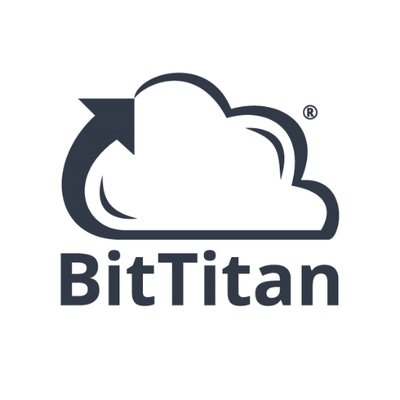Are you ready to supercharge your Node.js development experience? With the right set of tools, you can elevate your projects to new heights, streamline your workflow, and create powerful, high-performance applications. This comprehensive guide will introduce you to the top tools for Node.js development, provide tips on enhancing your workflow with the best tools for Node.js development, and offer resources to help you stay up to date with the latest best practices in the ever-evolving world of Node.js development. Let’s explore the essential tools for Node.js development and dive in!
Key Takeaways
Explore the key tools for Node.js development in 2024, including Express.js, Webpack and Mocha.js. Learn about Visual Studio Code extensions, debugging tools and performance monitoring to enhance your workflow. Gain insight into choosing the right toolset and staying up to date on best practices for successful Node.js projects.
Node.js has become an essential part of the software development landscape, acclaimed for its ability to create server-side applications using JavaScript. According to the Stack Overflow Developer Survey 2023, Node.js ranks second in popularity for web development, a testament to its influence and versatility. We’ll now delve into the top Node.js development tools designed to simplify your workflow, save time, and aid in building robust, efficient applications.
Some of the many development tools available are:
– Express.js
– Webpack
– Mocha.js
– Chai
– PM2
– Passport.js
– Babel
– Electrode.io
– Sinon.JS
These tools serve a variety of purposes, from web application frameworks and module bundlers to testing suites and authentication middleware. These fundamental Node.js tools, along with other essential JavaScript tools, empower you to concurrently develop applications on both the server and client sides, leveraging JavaScript to ensure a seamless development experience.
Whether you’re a seasoned Node.js developer or new to the world of JavaScript, having the right tools at your disposal can make all the difference. In the following subsections, we’ll examine in detail these top Node.js development tools, discussing their functionality, benefits, and their utilization in building powerful, efficient applications.
Express.js
Express.js is a widely-used web framework for Node.js, perfect for creating server-side applications and APIs. Combining Node.js and Express.js enables you to develop a comprehensive JS app, with Node.js managing the server-side component, while Express.js takes care of website application deployment. Its popularity as a minimalist web framework makes it an ideal choice for building server-side applications and APIs, and the comprehensive documentation provided by the official Express.js website ensures you’ll have all the guidance you need.
Webpack
Webpack is a popular JavaScript module bundler, typically used for: bundling JavaScript files for use in a browser optimizing asset loading simplifying front-end development enhancing user experience reducing developer workload To harness the power of Webpack, you can use its command-line interface to compile JavaScript files for browser applications, ensuring that your code is optimized for maximum performance.
Mocha
Mocha is a rapid and versatile testing suite for Node.js, providing support for unit and integration testing, test-driven development (TDD), and behavior-driven development (BDD). It allows you to run tests in both the console and the browser, making it suitable for various JS projects. Mocha.js is compatible with a range of JavaScript frameworks, such as Chai, Sinon, and Should.js, ensuring that you have the flexibility to choose the right testing tools for your project.
Chai
Chai is a test-driven development (TDD) and behavior-driven development (BDD) assertion framework for Node.js, which can be used in conjunction with any testing framework, such as Mocha.js, for app development. Chai offers a variety of plugins, including chai-as-promised, chai-subset, and chai-things, giving you the flexibility to tailor your testing experience to your specific needs. By utilizing Chai in your testing process, you can ensure that your Node.js applications are reliable, efficient, and free of errors.
PM2
PM2 is a Node.js-based framework and production process manager, featuring a built-in load balancer for Node.js applications. It allows you to run applications in cluster mode, spawning processes for multiple CPU cores simultaneously, and update applications with zero downtime through the “hot reload” option. By integrating PM2 with platform-as-a-service (PaaS) providers, you can take advantage of features such as: cloud infrastructure networking storage operating system middleware runtime environment third-party API integration In essence, PM2 is an excellent tool for streamlining process management for Node.js applications.
Passport.js
Passport.js is an authentication middleware for Node.js, streamlining user authentication by offering a huge number of authentication methods, including: username and password models login through Facebook login through Google login through Twitter Passport’s flexibility and modularity allow for seamless integration into Express-based web applications, making it an invaluable tool for building secure, robust applications.
Babel
Babel is a JavaScript compiler that allows you to use the latest ECMAScript 2015+ features in your projects, while also compiling your code to be compatible with older browsers. Incorporating Babel into your development process facilitates writing modern JavaScript code that holds compatibility with all browsers, even older versions, thus guaranteeing the optimum user experience for your audience.
Electrode.io
Electrode.io is an open-source application platform developed by Walmart Labs that facilitates the construction of large-scale, universal React/Node.js applications in an organized fashion. By providing best practices, standardized structure, and modern technologies, Electrode.io allows you to create powerful, scalable applications with ease.
Sinon.JS
Sinon.JS is a cross-browser, standalone testing framework that supports stubs, spies, and mocks for JavaScript, compatible with any testing framework. By simplifying the testing process and providing the ability to replace more challenging aspects of tests, Sinon.JS enables you to create robust, efficient applications with confidence.
Enhancing Your Node.js Workflow
Optimizing your Node.js workflow is crucial for efficient and effective development. By utilizing the right tools and techniques, you can streamline your development process, reduce the time it takes to complete tasks, and ensure that your code is optimized for performance. In the following section, we’ll examine Visual Studio Code extensions, debugging tools, and performance monitoring tools, all designed to optimize your Node.js workflow and aid in the creation of superior applications within an open source runtime environment.
Visual Studio Code Extensions
Visual Studio Code, a popular code editor for Node.js developers, offers a wide range of extensions that can help you streamline your development process and improve the quality of your code. Some of the most beneficial extensions for Node.js development include: npm Intellisense, ESLint, the Prettier code formatter, GitLens, and JavaScript (ES6) code snippets. All of these extensions are available at the official Visual Studio Code Marketplace. Inclusion of these extensions into your development workflow can save time, reduce errors, and create more maintainable, robust applications.
Debugging Tools
Debugging tools are essential for identifying and resolving issues in your Node.js applications. Some of the most popular debugging tools for Node.js include Node Inspector, Stackman, and Theseus. By incorporating these tools into your development process, you can quickly identify and resolve errors, ensuring that your applications are reliable and perform at their best. A debugging tool not only helps you gain a better understanding of your code but also enables you to pinpoint areas for improvement and optimization.
Performance Monitoring Tools
Performance monitoring tools can help you optimize and improve the performance of your Node.js applications by providing valuable insights into response times, memory usage, and other metrics. Tools like Appmetrics, PM2, and Prometheus can be employed to detect and resolve performance issues in your applications, ensuring they run smoothly and efficiently. Incorporating these tools into your development process enables you to develop high-performance applications, thereby ensuring an excellent user experience.
Node.js Frameworks for Different Use Cases
Node.js offers a wide range of framework options for different use cases, each with its own strengths and capabilities. Some popular Node.js frameworks include Express.js for web applications, Nest.js for scalable applications, and Koa.js for lightweight applications. By choosing the right framework for your specific use case, you can leverage the power of Node.js to build robust and efficient applications.
In conclusion, by utilizing the right tools, extensions, and frameworks, you can enhance your Node.js development workflow and create powerful, high-performance applications. Stay up to date with the latest best practices and continue exploring new tools and techniques to ensure your Node.js projects are successful. Happy coding!
Source link






















